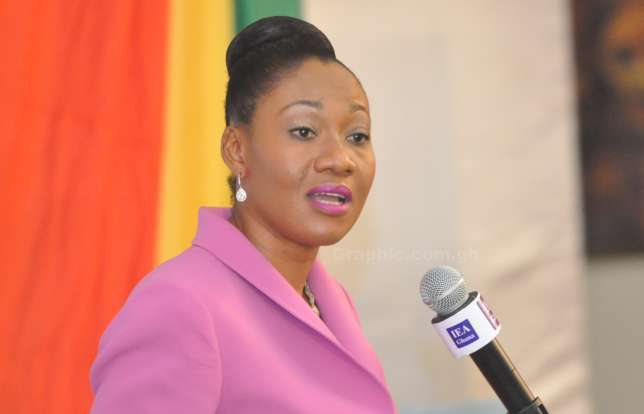I am still reading the Electoral Commission’s communique, the reaction from the opposition parties and discussions on our social media platforms. What we should know is that when authoritarian leaders see themselves losing political power they fight against it tooth and nail. Many only relent when they are forced to do so by the weight of domestic opposition or an international ultimatum.
More elections are being held in Africa than ever before, but the average quality has fallen for the last three years. The reason is that overambitious politicians on the continent have learned how to rig elections.
A research conducted by a credible institution based in the United States, revealed that between 2012 and 2016, more than two thirds of elections in Africa and almost half of all elections in Asia and post Soviets k Europe feature significant vote burying, electronic manipulations and general rigging. Worse still, more than a third of elections in all these regions saw state violence targeting opposition parties and their supporters like what we saw at Ayawaso West Wuogon.
Despite this, elections are rarely condemned by international monitors- in part because rigging is becoming harder and harder to detect. Whenever monitors come up with new strategies to detect tried and true rigging tactics, dictators and despots innovate. What the Electoral Commission and all stakeholders should know is that elections has become a high stake event that rigging them can lead to serious political violence and harm our national identity.
In Nigeria, just after Buhari’s inauguration, the APC started preparing the grounds for the 2019 presidential election. In the 2015 presidential election, Buhari of APC was awarded 15,424,921 votes by INEC, while Goodluck of the PDP had 12,853,162 votes. INEC registered over 7.6 million votes, from the entire South East for the 2015 election, and only 5.6 million PVCs were reported as collected. In the North West, the figure was 17.6 million voter registrations and 15.1 million PVCs were reported as collected. While in the South West there were 4.2 million votes in 2015, relative to 4.million in 2011, in the South East, there were only 2.6 million votes in 2015, relative to 5 million in 2011, a drastic drop of 2.4 million votes. That drop was virtually the APC margin of victory in 2015. Buhari defeated Jonathan with a plurality of 2,571,759 votes. The report I read said, while Kano, Katsina, Jigawa and Bauchi posted homogeneous figures in 2015, Imo, Anambra and Abia posted disappointing figures. While the card readers failed in many parts of the South East, suggestive they were programmed to fail, they worked in most places in the north. In places like Lagos and Kano, many non-indigenes, especially the Igbos were not even given the PVCs and so could not vote. The APC challenged the 2015 elections in the South-South in the court. It then started intimidating attacks on the judiciary to make it fall in line with its 2019 agenda. Buhari made sure that some south-south tribunal chairmen were summarily dismissed, replaced with more malleable choices. Some cases were even transferred to APC strongholds in Abuja. Buhari made his 2019 intentions and plans clear. It is not surprising, therefore that, on the eve of the 2019 presidential election, Buhari wickedly suspended the Chief Justice of Nigeria, Walter Onnoghen a south south man from Cross River.
Nana Akufo Addo and Jean Mensah have started laying the foundation for their 2020 rigging agenda. In the 2015 presidential election in Nigeria, the PDP stronghold of River State shared a total of 1,556,313 votes between the PDP and the APC, giving the PDP the lion share of 1, 487,075 votes. In the 2019 election, this was suppressed to 624,681, a deceased of 931, 632 votes. Out of this suppressed figure, the PDP only obtained 473,971 votes making a total decrease of 1,013,-104 votes between 2015 and 2019. Same strange trend was recorded in all the strongholds of the PDP.
While Southern areas of PDP strength were experiencing voter suppression, Northern areas of APC strength were increasing in voter strength.
The NPP and the Electoral Commission will adopt same votes suppression method come 2020 hence the need for the opposition to kick against any dubious agenda the EC introduces ahead of the 2020 election.
I am among those who hold the position that the 2016 election was brutally manipulated. The question as to why the incumbent allowed the opposition to rig the election is bogus and out of place. The opposition rigging agenda was pushed across the continent and almost all the opposition parties achieved their target. The opposition in Kenya was unsuccessful because of the measures the incumbent instituted, based on briefings it received from defeated candidates on the continent. All the opposition parties adopted the fake promises campaign, intimidation of electoral commissions, issuing of war threats and declaration of election results before the Electoral Commissions announce their official results.
When despots or corrupt politicians try to consolidate power for themselves, one of the ways that they accrue influence is to rig elections. The opposition parties led by the NDC must resist all moves to rig the 2020 election. It is not a difficult thing to do.
Disclaimer: The views/contents expressed in this article are the sole responsibility of the author(s) and do not necessarily reflect those of FN News. Fnnewsroom.com will not be responsible and or liable for any inaccurate or incorrect statements contained in this article.

